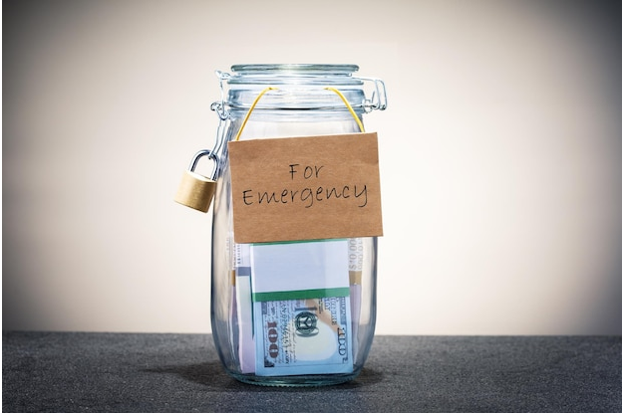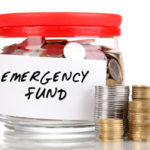An emergency fund is your financial lifejacket. These handy savings help keep you afloat when waves of unexpected expenses come your way. But how big of a lifejacket do you need to weather your next financial storm? Let’s find out below:
The Golden Rule of Emergency Savings
The most common advice isn’t a black-and-white number that fits everyone. Instead, it’s a unique benchmark based on your lifestyle.
Experts believe you should save enough that your emergency fund could cover three to six months of living expenses without the help of a paycheque. That way, you can have as much as half a year to find a new job if you lose yours.
Ideally, you won’t go through a devastating layoff or other interruption to your earnings. But the advice remains the same. As much as six months of living expenses can help you cover a long list of random expenses or one large, unexpected repair to your home or car. You can rely on these savings before taking out a loan or line of credit.
How do you feel about this goal? If this enormous target has overwhelmed you, check out these tips for creating an emergency fund from scratch. They include simple advice, like how to maximize your budget for emergencies.
Who Needs to Save More?
Everyone stands to benefit from a well-stocked emergency fund. But some people might need to adjust their savings goal and sock away more than six months of living expenses.
Check out the list below to see if you’re one of those people.
You Have Many Dependents:
Do you have several children? Do you look after a sick family member? Do you cover another loved one’s bills to help them make ends meet? You might need to save more to feel comfortable when you’re the sole breadwinner.
With each added dependent, you might want to consider bumping up your goal. After all, a parent of five will have to deal with more doctor’s fees and prescriptions when the kids get sick than someone who only has one child. You may also have to miss work more often to look after your dependents.
You Work in a Volatile Industry
While no job is 100% recession-proof, some are less secure than others. Contract workers, waitstaff, flight attendants, and car salespeople are most likely to experience some interruption in pay, even before a recession. They’re also hit hardest by an economic slowdown, as most people don’t have the money to go out to eat or travel in the middle of a recession.
Financial advisors Suze Orman and David Bach recommend that at-risk workers save as much as a year’s worth of living expenses in their funds. At this amount, you give yourself a 12-month grace period to figure out your career.
You Are Chronically Ill
People who are disabled, immunocompromised, or chronically ill might want to up their savings goals, too. You may face more medical expenses when managing your health than others. You’re also more likely to take time off from work when your injuries or disease flare up.
While some employers will offer a generous sick- and personal-day package, these paid days off aren’t endless. Eventually, you might have to take time off without getting paid, and your larger fund will cover this income loss.
The Takeaway: Savings Are Personal
The golden rule sets a decent benchmark that will suit most people’s needs, but you might plan to increase your goal depending on your lifestyle. Sit down with your budget to figure out how big your financial life jacket should be.
Related Posts












